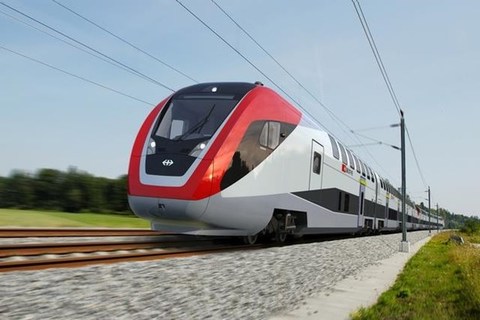
The Ha Noi-HCM City High Speed Rail Project is estimated to cost US$58.7 billion. — Photo swissinfo.ch
The Ha Noi-HCM City high speed rail project will benefit the country’s economy, but there are several challenges to implementation of the mega project, including financing, attracting private sector interest and a weak business case.
So said analysts from Fitch Solutions Macro Research in a report released this week on the outlook of the largest infrastructure project in Viet Nam for the next decade.
According to Fitch analysts, the US$58.7 billion project, if approved and implemented, will benefit the development of cities along the route, but securing financing will be the greatest challenge to the project. It is estimated the hefty price tag puts the cost of the project at more than 25 per cent of the country’s nominal GDP in 2017.
According to a proposed plan, the project will use a Public-Private Partnership (PPP) model, with 80 per cent of the funds contributed by the Vietnamese government and 20 per cent of the funds provided by the private sector.
Meanwhile, the country has been running a budget deficit averaging 5.4 per cent of GDP over the past five years, and it is very likely funds for the project will have to be raised via the issuance of public debt.
According to the analysts there are several other issues to consider. Viet Nam currently has a self-imposed public debt-to-GDP ceiling of 65 per cent, and current levels of debt have come close to breaching this cap. Unless the government revises the debt-ceiling limit, there will be little headroom for the government to issue debt.
A number of other infrastructure initiatives, such as the expansion of the Ha Noi and HCM City metro systems, are also reliant on public funding, which reduces the Government's financial capacity.
Given these factors, the government is likely to face challenges in project financing which may result in delays, or in the worst case scenario, the cancellation of the project.
“Furthermore, we expect the project to experience cost overruns due to an increase in the price of construction materials and land, as well as delays associated with adverse weather conditions and inefficiencies during the project execution phase, and this will result in greater financing difficulties for the Government,” the report said.
Besides financing, another potential hurdle is the ability to attract private sector interest, the analysts said, citing the cancellation of the country’s first PPP transport project – the US$750 million Dau Giay-Phan Thiet Expressway Project – last year due to the withdrawal of potential investors’ bids over financing uncertainties as an example.
“Although the government has continued to push for a number of projects, including the high-speed rail project, to be implemented using the PPP model, they may continue to face challenges in attracting enough bids from the private sector,” the report continued.
A weakening business case will be also a potential challenge for the project as it will have to compete against road and air transport systems that are expected to grow strongly over the next decade.
As such, Fitch concluded that from a cost-benefit perspective, the Government may continue to explore cheaper alternatives, such as the construction of another main line supplementing the existing colonial-era North-South Railway line, which puts the high-speed rail project at risk of suspension. — VNS